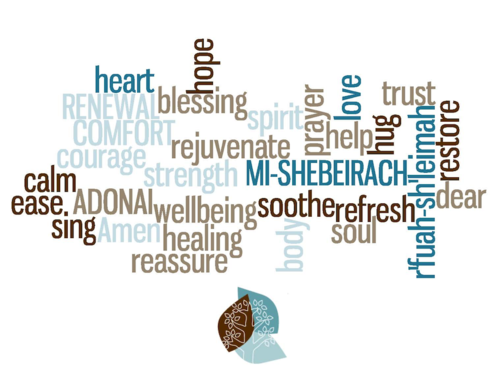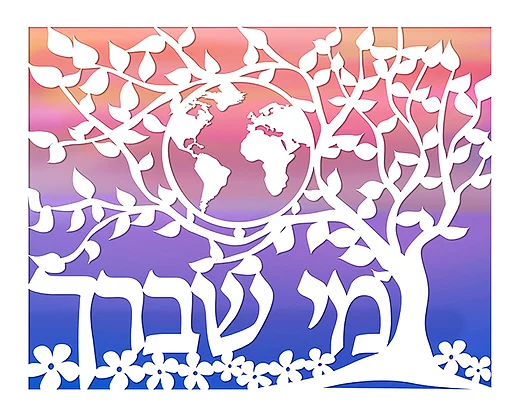Shabbat Gathering: Mi Shebeirach: Healing for all of us.

Dear Chevra, as is our custom, we will gather tonight at 5.45p to welcome Shabbat. Here are the coordinates:
Zoom
Meeting ID: 963 5113 1550
Password: 1989
Phone: +1 312 626 6799
(To unsubscribe from the newsletter, click the link at the very bottom of this email.)
But first, our recipes!
We had a pretty good response to the call for recipes. Here's a link https://shabbat-gathering.ghost.io/our-recipes/ to them. Tasty!
Here we go.
The Mi Sherbeirach is a special moment in our Friday night service. We open our hearts and share our concern and love to our group so that, together, prayers of healing will flow in the direction of those we’re worried about. I believe the Mi Sherbeirach does as much for us as it does for the ones we love and care for.
The origin of Mi Sherbeirach is lost in time, or is beyond time altogether, because as long as we have been people, we have loved others who are in need of healing -- physical, emotional, and spiritual. We bake casseroles. We visit them in the hospital or send them a simple text message to let them know we are thinking of them. We listen to them, deeply, to understand their pain and suffering. We become present for them. We are someone who, at least for the moment, is stronger, who can help them shoulder their burden. And we pray for them. On Friday nights, we convene a group with a common purpose. Our thoughts and our souls combine into one voice – a plea – raised to Hashem. All together we summon our ancestors who forged the contract with Hashem. We will perform our duties and Hashem will show us mercy.

Bless those in need of healing with r'fuah sh'leimah.
Judaism has hundreds of mitzvot, each of which has its own reward; but only a handful of them are singled out as limitless and having rewards that are also limitless. Not surprisingly, 'visiting the sick' is just such a mitzvah:
These are the obligations without measure, whose reward too is without measure:
To honor mother and father
To do acts of loving kindness
To arrive early for study, morning and evening
To welcome guests
To visit the sick
From the morning liturgy.
And after we’ve performed our acts of lovingkindness, and after we have said Mi Sherbeirach, we can look inwards and know that we’ve performed our duty, our sacred obligation, the mitzvah, to comfort and bring healing to the ones we love. We can tell ourselves, in that moment, that we have done all we can do to help. It isn’t a feeling of satisfaction but a sense of completion in that fleeting moment. And we can find healing comfort in that until it’s time for us to continue performing the mitzvah.
This is what Rabbi Rachel Barenblat, the Velveteen Rabbi, says:
When I pray for someone's healing, I know that my prayer may not change their medical condition. But the act of extending my heart to God on their behalf can change me. And from that changed place, I am more aware of their needs, and that's what impels me to take action to help them.
The way we bring our voices together in the Mi Sherbeirach should be noted. The prayer is ancient, but the way it’s set to music that came to us in 1989 when Debbie Freidman wrote the music and co-wrote the lyrics with Drorah Setel. For me, it is the perfect expression of what’s in our hearts and seems as timeless as the words we sing. It is a creation that is so obviously inspired by the Divine.
And may it be for all of us a blessing.
See you tonight!
All my love,
brian.